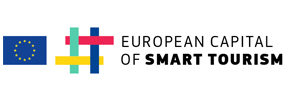



In 2017 Wonderful Copenhagen, the city’s official tourism organisation, declared the end of tourism as we know it. There was however nothing pessimistic about this statement, instead the city had set its sights on flourishing in the digital age of travel, in which growth would not be an end in itself, but rather tourism would be considered a means to a more sustainable future, in which connections are forged and both the city and visitors alike are able to benefit. With this in mind, Copenhagen has fully committed to a smart future in which the city is a social media influencer and visitors are guided around with the help of AI technology.
Social media influencer
Copenhagen’s smart reach starts even before visitors arrive in the city. Wonderful Copenhagen has established a 365 day a year storytelling strategy and the organisation also provides support to businesses in internationalising social media platforms, gives them advice on producing valuable video content and ensures they register wheelchair accessibility on Google Maps. These efforts make sure that the city’s treasures are revealed for all to see, so that visitors can make the most of their stay.
On arrival in the city, the innovative Copenhagen Visitor Service is a first point of call, where tourists can grasp everything the city has to offer, through moving posters, robotics, or even by putting on a pair of VR goggles and experiencing the city’s best attractions through the eyes of a couple, locals, a family or seniors. Once tourists leave the visitor service they can make use of the city’s app, which guides users between attractions. Within the app, a tracking module that asks users for consent before activation gathers data so that the authorities can better understand movement patterns both around the city and at attractions on the outskirts. The data that is collected is helping to continually improve services.
A helping hand from hackers
In an effort to stay at the cutting edge, Copenhagen also regularly hosts events for tech companies, to ascertain how data can be used to improve the lives of both locals and visitors. The 2017 Open Tourism Days hackathon for example, resulted in an app that offers self-guided tours through local Copenhagen neighbourhoods, meaning tourists get to see the “real” side of the city. The app is also benefitting local businesses and helping to disperse the flows of visitors. At the hackathon in 2018, AI experts worked on auto-generated and customised push messages for travellers, making it possible for users of the app to receive content, based on their location and preferences.